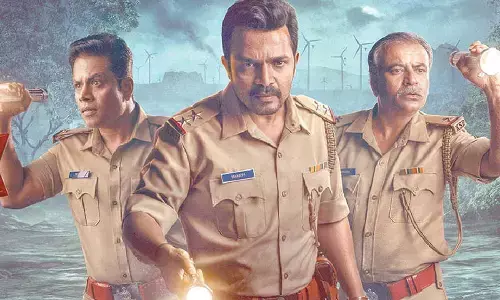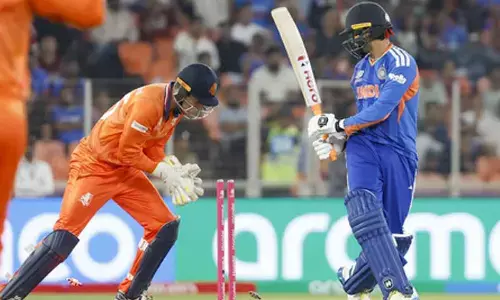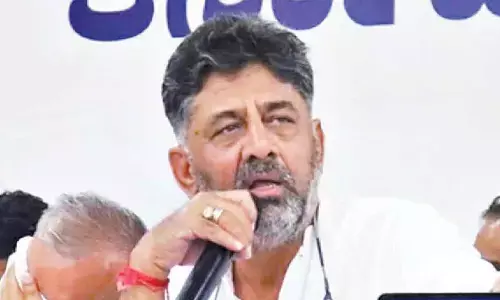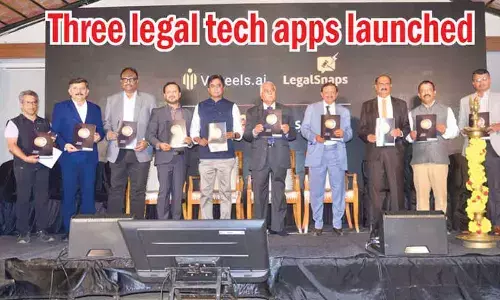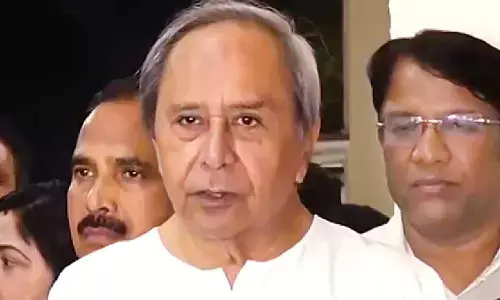Our Legislators did a great job!
Our Legislators did a great job! The Andhra Pradesh legislators of Seemnadhra and Telangana regions did a great job in fulfilling their legislative responsibilities and have completed the process on the Bill-2013 at the state level.
The Andhra Pradesh legislators of Seemnadhra and Telangana regions did a great job in fulfilling their legislative responsibilities and have completed the process on the Bill-2013 at the state level. It is now left to the Parliamentarians of the country to take it to a logical end or reject or hang onto the vexed issue. However, it is time to reflect without prejudice to any one as to how our Telugu legislators acted in the course of the whole drama of brining a lot of issues for public debate. I don’t think any other state in the recent past has spent so much of energy, time and intellect in debating on a single issue. Someone might say that there was no turmoil in the formation of certain states and there was unanimity in making legislation, however does not augur well for democracy. Democracy in the modern world is a process of continuing debate and discussion to arrive at consensus without limitations of a party or group directive. We are not interested here about the outcome of that debate, but only the process.
Democratic deliberations at the present are ultimately used to arrive at decisions that are broadly benefiting the participants and not necessarily the people that they represent. We cannot compare the kind of democracy that existed during the Buddhist period or during Abraham Lincoln, Karl Popper, etc., when the role of media in public life was limited. Scholars have now devised terms like “mediacracy “, “mediatisation” where political institutions rely heavily on media. It is a post-modernist trend in political communication to influence a discourse. The process of dispassionate discussion and the free and indiscriminate access to media sources as a part of democratic values in the current state of affairs is dichotomous; given the jingoisms. Telugus are not far behind this trend. This appears to be a serious issue that needs a separate debate.
We must keep in mind that the rhetoric or serious deliberations of our Legislators in both the houses of Assembly and Council and in public platforms may be reckoned to commend our leaders. The topics and the scale of issues with in each subject are found to be very huge but limited to Andhra Pradesh and to Telugu people. It is heartening to note that some of them have claimed academic and research credentials (irrespective of their subject specialisation) in presenting material for public debate. I think no university or the community of academic scholars in the state had prepared as much material as the legislators did to our united and complex Telugu culture. Unfortunately no one seems to have clarified whether there was any single state or domain ever existed in the name of ‘Andhra’ or ‘Telugu’ within the confines of the present territory (on which the debates are organised) or were allusions or myths attributed to language speakers by pundits, scholars and by sporadic writings. What was the objective of the writers in depicting our past history, culture and geographical unity? Did India imagined or created or formed with a place for Telugu country or nations like Satavahanas, Vishnukundins, Kakatiyas, Kalingas, etc? Who were the original Telugu speakers? The number of issues brought in for debate are so vast that may inspire scholars and writers for serious study and reflection to generate credible material (apart from APHS) that would be the common property of all Telugus in future.
It is in this context, we may discuss how our leaders have suggested modifications and amendments to the Bifurcation Bill. It is found that the so-called controversial Bill-2013 is of 63 pages with 108 Articles, 13 schedules. It seems the Bill is modelled on the lines of ‘The Andhra State Act 1953’ that had 58 Articles and 9 schedules. The more comprehensive ‘The States Reorganisation Act 1956’ based on which the present Andhra Pradesh and several other states were formed,had 136 Articles and no schedules. We must applaud our bureaucrats for their expertise in the art of making excellent Bills and Cabinet Notes. It seems only senior bureaucrats in the rank of Joint Secretary (state level secretary) and above is involved in the drafting of the Bill and it is unlikely that they would have deliberately committed mistakes and invite disciplinary action. Political executive are different.
It is fascinating to note that the present Bill was discussed threadbare, otherwise how could anyone expect around 9000 amendments. It means that each article on an average has 142 amendments and each line about 4 modifications. This is really fantastic and needs to be verified, is it a record? We should congratulate our legislators for the unique feat. It is curious to observe that advocates, retired judges and experts in constitutional matters were dragged into the debate perhaps to give legitimacy to some of their opinions. We may reflect here on several interesting expositions about how the legal profession was borrowed from colonial masters and not based on our ethos. Most of the freedom fighters and later legislators were drawn from the emerging professions like lawyers, doctors, etc. They represented us in the Constituent Assembly that created our Constitution. Therefore, the anecdote goes they have clarity and purpose in making all the Articles relating to Judiciary impermeable and resulted in only one amendment out of 98 so far. Even that amendment is related to the salaries of Judges in 1986. But, there are amendments and revisions on other concerns including an attempt to redraft the Constitution.
As long as the Judiciary is drawn from the open Legal Profession, without a permanent cadre of judicial officers, live contact among the fraternity remains and reflects the dichotomies and wide differences in their interpretations. Is it justified in a democratic polity? However, a Judge, according to Prof Moolchand Sharma (a scholar of legal studies and personal friend, VC-CUH) should have ‘compounded faculties of a historian, philosopher and a prophet’. Some of the qualities are also anticipated in Lawyers. We know the dearth of such abilities among our office seekers today (many lament), and therefore, most of the issues including the bifurcation problem are technically interpreted.
In a Parliamentary democracy, Parliament is said to be supreme and the wisdom of the Members of both the houses would ultimately prevail. But, the question remains what message or image our Telugu legislators have given to the country? How does the present tangle help the common man without any vision or perspective plan? Does UT status help all? Did the legislators ever cared discussing problems of common people and why is this unexpected love for the land? Did the amendments (confidential) really reflect the wish and will of the people or only the interest groups?
(The writer is a former UPSC member. He can be reached at [email protected])
Next Story


